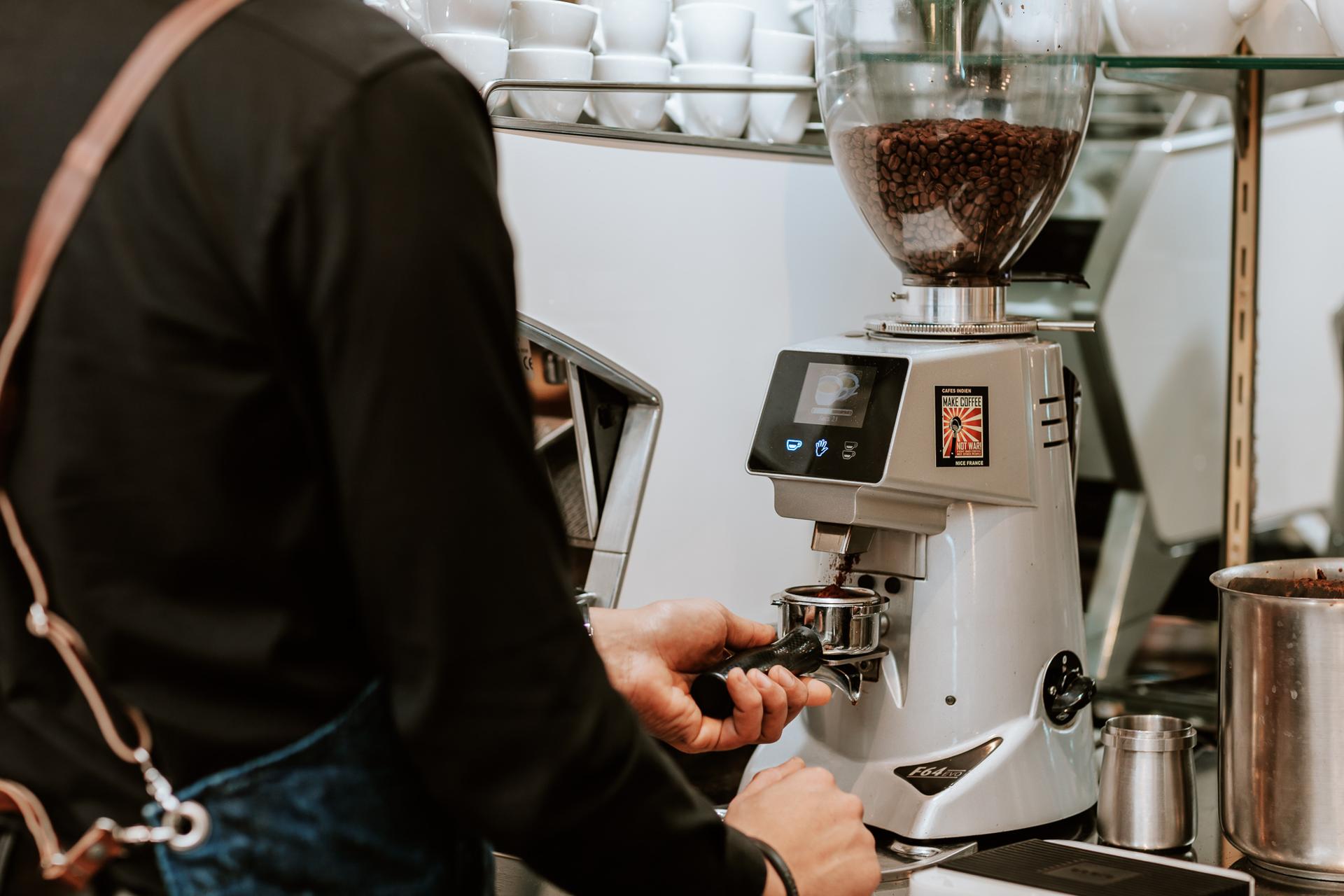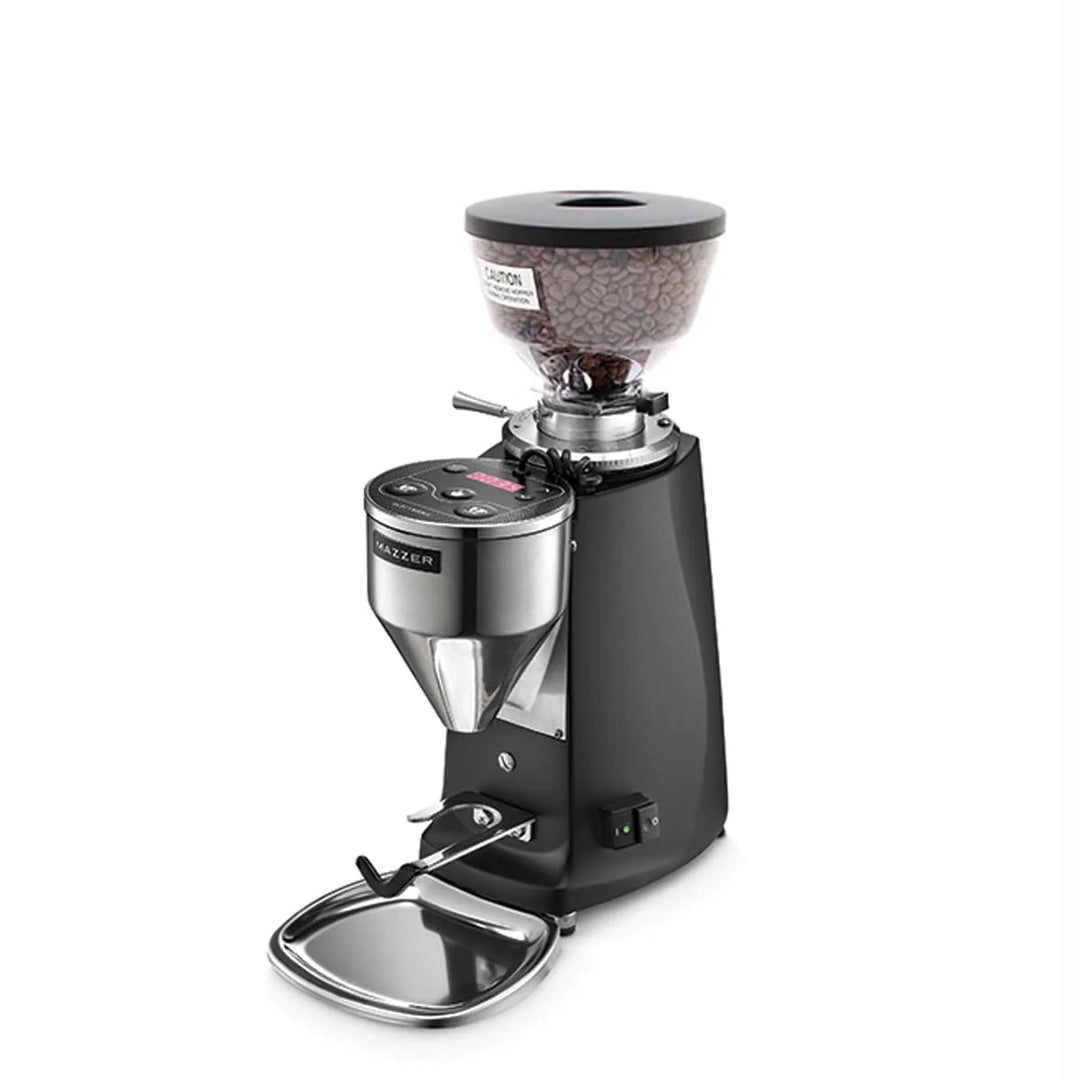Industrial Coffee Grinder for Large-Scale Brewing: A Necessary Tool
Industrial Coffee Grinder for Large-Scale Brewing: A Necessary Tool
Blog Article
Exactly How to Pick the Perfect Industrial Coffee Mill for Your Business
Choosing the ideal industrial coffee grinder for your business is a multifaceted decision that requires careful consideration of a number of crucial elements. It is important to evaluate your certain grinding requirements, including the quantity of coffee processed and the desired work uniformity, as these components straight impact flavor and consumer complete satisfaction. In addition, comprehending the various types of grinders available can substantially affect your functional effectiveness. As you navigate these factors to consider, one have to additionally weigh the effects of budget plan and maintenance. What various other factors could make or damage your selection?
Assess Your Grinding Needs
When selecting a commercial coffee grinder, one should initially assess their grinding demands to ensure ideal efficiency and uniformity. This initial assessment entails recognizing the quantity of coffee to be processed daily, as well as the desired grind dimension for various developing techniques. A high-capacity mill might be necessary for services serving large amounts of coffee, while smaller sized procedures may find an extra portable model sufficient.
Additionally, it is vital to think about the sorts of coffee beans being used, as various beans may need certain grinding strategies to attain the very best taste account. Oily beans might require a grinder designed to handle such features without clumping or overheating.
Specialty coffee businesses often demand accurate work dimensions to boost removal and taste, making it vital to choose a grinder that can deliver consistent outcomes. Reviewing the readily available room and electric demands will assist in picking a mill that fits effortlessly right into your operational workflow.
Understand Grinder Types
Understanding the different sorts of industrial coffee mills is essential for making an educated choice that satisfies certain functional demands. There are mostly 2 categories of mills: blade grinders and burr grinders.
Blade grinders utilize spinning blades to cut the coffee beans, leading to an irregular grind size - Industrial Coffee Grinder. While they may be more affordable, they are usually not suitable for commercial applications where precision is necessary
On the various other hand, burr mills give a more consistent work by crushing the beans between two surface areas. They can be further classified right into flat burr and conical burr grinders. Flat burr mills supply a constant grind dimension and are generally favored for espresso prep work, while conelike burr grinders are versatile and can take care of a variety of brew techniques, from espresso to French press.
When selecting a grinder, think about the certain needs of your company, consisting of preferred work consistency, production quantity, and the kinds of coffee drinks you prepare to offer - Industrial Coffee Grinder. Each mill kind has its benefits and constraints, so comprehending these nuances enables educated decision-making that straightens with operational goals
Evaluate Work Size Consistency
Accomplishing work size consistency is necessary for creating premium coffee, as variants in fragment dimension can significantly influence extraction and taste. When selecting an industrial coffee grinder, it is important to evaluate exactly how well the machine preserves harmony in grind size across different batches. Irregular work sizes can lead to unequal removal, leading to a cup that may taste weak or overly bitter.
To assess work size uniformity, take into consideration mills with functions such as flexible work settings and top quality burrs. Burr grinders, in specific, excel in creating uniform fragment dimensions compared to blade mills. The material and form of the burrs play a crucial role, with stainless-steel and ceramic alternatives offering longevity and accuracy.

Think About Manufacturing Capacity
In the busy world of coffee manufacturing, taking into consideration production capability is paramount for organizations intending to fulfill demand without giving up top quality. The production capacity of a commercial coffee mill directly affects a firm's capability to satisfy orders successfully, manage stock, and reply to rising and fall market patterns.
When assessing production ability, it Industrial Coffee Grinder is necessary to examine the mill's result rate, generally gauged in extra pounds per hour. This measurement ought to align with your company's projected sales quantity and growth targets. A café with a high turn over might need a grinder that can refine a number of hundred extra pounds daily, while a smaller sized procedure could be sufficient with a reduced capability model.
Additionally, consider the type of coffee being processed. Various beans and blends might influence grinding rate and efficiency, requiring a mill efficient in taking care of varied production requirements. It's also worth factoring in the mill's capacity to keep regular top quality under high output problems, as any type of fluctuations can influence the end product.
Eventually, selecting a mill that matches your business's manufacturing capacity will certainly guarantee you continue to be responsive and competitive to client assumptions.

Budget and Maintenance Factors
When evaluating the ideal industrial coffee upkeep, budget plan and mill elements play a significant function in the overall decision-making procedure,. A first investment in a high-grade mill can produce long-term benefits, however it's important to develop a clear spending plan that lines up with your service's functional needs. Take into consideration both the purchase rate and potential operational prices, such as power usage and substitute parts.
Maintenance is another critical element that can affect your budget plan. Industrial coffee mills need normal upkeep to guarantee ideal efficiency and durability. Examine the maker's referrals for maintenance, including cleaning routines and parts replacement, as these will affect long-term operational costs. Additionally, think about the accessibility of solution and support, as reliable assistance can mitigate downtime and fixing costs.

Purchasing a grinder that is resilient yet easy to maintain can conserve money with time. While lower-priced alternatives might be alluring, they may incur higher upkeep expenses and minimized effectiveness. Ultimately, balancing Read More Here initial expenses with lasting maintenance and operational effectiveness will certainly guide you to the finest choice for your service's coffee grinding needs.
Conclusion
Choosing the perfect commercial coffee mill demands an extensive assessment of grinding demands, grinder kinds, grind dimension consistency, manufacturing ability, and budgetary factors to consider. By focusing on these aspects, organizations can guarantee the procurement of a dependable, efficient grinder that satisfies details operational needs. An appropriate mill not only enhances the high quality of the coffee produced but additionally contributes to the overall success and earnings of the enterprise. Long-lasting efficiency and maintenance simplicity must stay central to the decision-making procedure.
Specialized coffee services usually require accurate grind sizes to improve extraction and flavor, making it vital to select a grinder that can supply consistent results. Apartment burr grinders provide a regular work dimension and are normally preferred for coffee prep work, while conelike burr mills are functional and can deal with a range of mixture methods, from espresso to French press.
When choosing a commercial coffee grinder, it is crucial to assess how well the equipment maintains harmony in work size across different sets. Burr mills, in certain, succeed in generating consistent particle sizes contrasted to blade mills.Picking the suitable commercial coffee grinder requires a comprehensive examination of grinding needs, grinder kinds, grind size consistency, production ability, and financial factors to consider.
Report this page